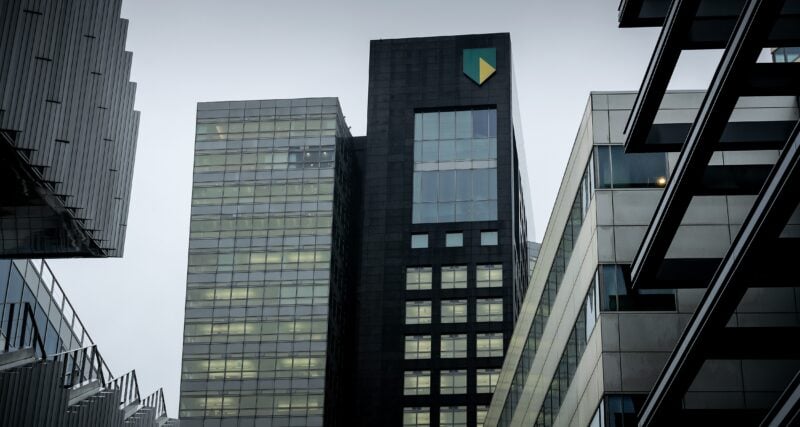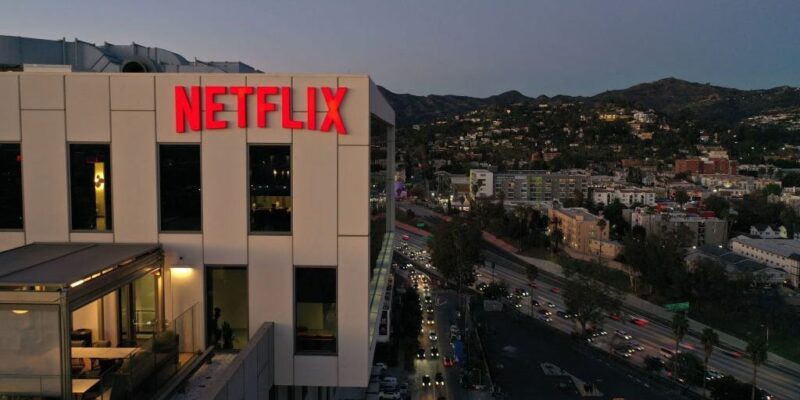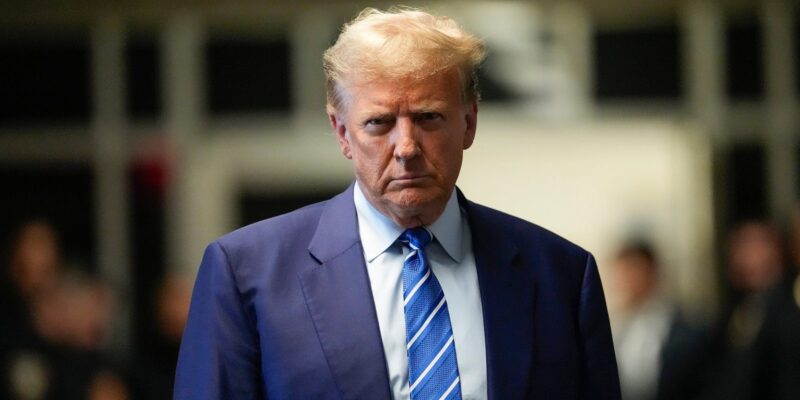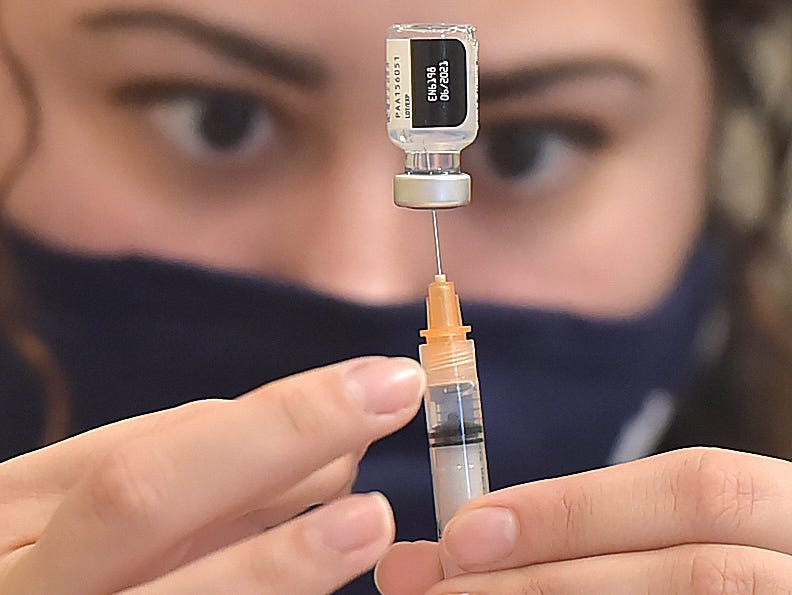
Pete Bannan/MediaNews Group/Daily Local News via Getty Images
- The FDA has fully approved Pfizer-BioNTech's coronavirus vaccine.
- The two-dose shot is now the first and only COVID-19 vaccine to get full approval.
- The shot was previously OK'd under emergency-use authorization, a more flexible regulatory standard.
- See more stories on Insider's business page.
The US Food and Drug Administration issued the first full approval Monday for a coronavirus vaccine, marking a pandemic milestone.
The two-dose jab developed by the New York pharmaceutical giant Pfizer and the German biotech BioNTech is now the first and only fully approved COVID-19 vaccine in the US. It will be marketed under the brand name Comirnaty.
Public-health officials, virologists, and legal experts anticipate that full approval could help persuade more hesitant people to get vaccinated, embolden more organizations to require immunization, and allow vaccine developers to market their shot to the public.
"We recognize that for some, the FDA approval of a vaccine may now instill additional confidence to get vaccinated," acting FDA Commissioner Janet Woodcock said in a statement. "Today's milestone puts us one step closer to altering the course of this pandemic in the US."
Coronavirus vaccines developed by Moderna and Johnson & Johnson are still covered by emergency-use authorization, a more flexible regulatory standard that the FDA uses in times of crisis. Moderna said it expects to finish its application for full approval with the FDA in August.
The full approval covers people 16 years and older getting Pfizer's vaccine. It will remain available to 12-to-15-year-olds under emergency use authorization.
Overall, about 171 million Americans have been fully vaccinated, with more than half receiving the Pfizer vaccine. Top US health officials are already planning booster doses, where people would be offered a third shot eight months after completing their initial vaccination.
Approval could address vaccine-hesitant talking points and spur more mandates
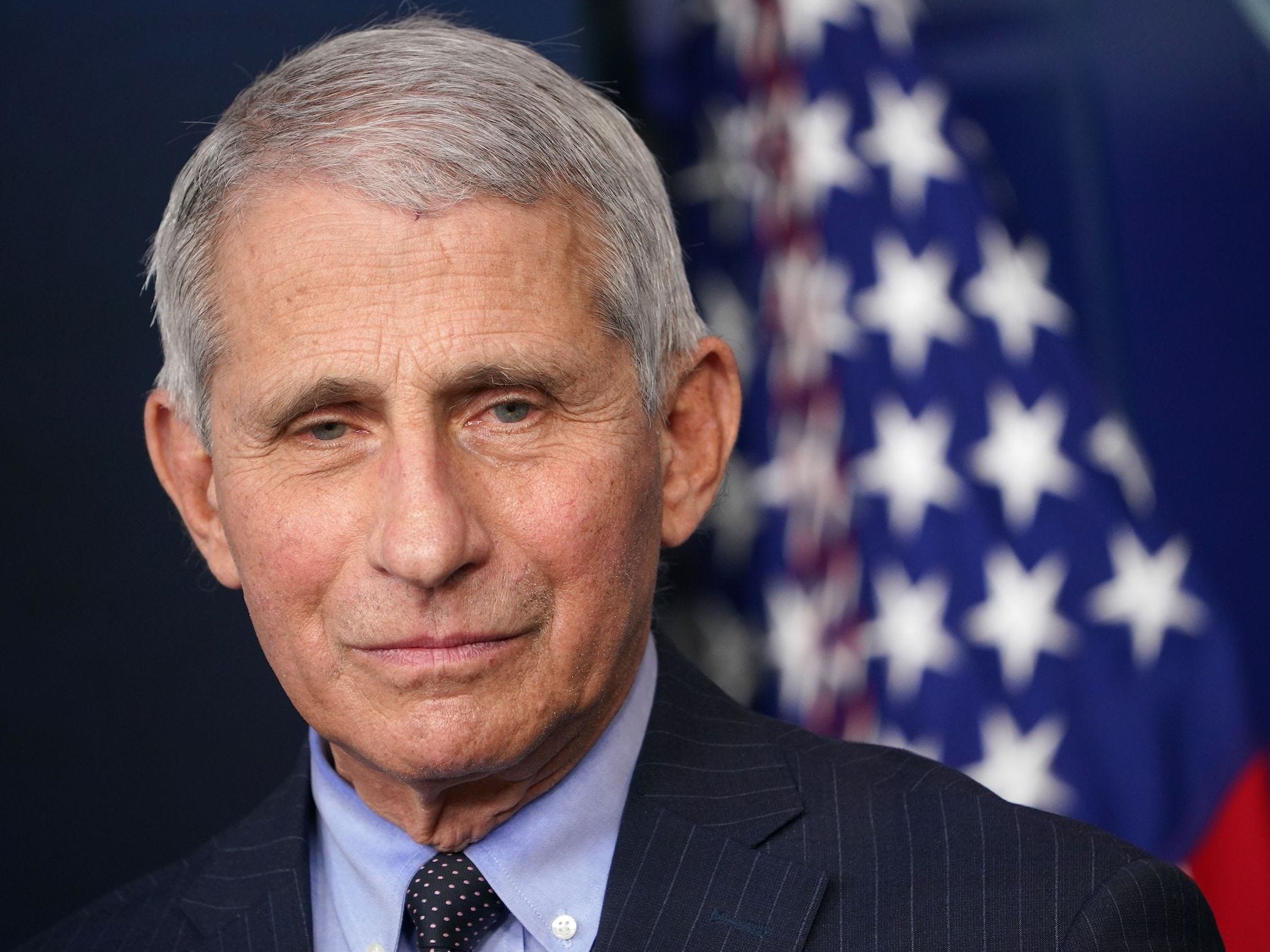
Mandel Ngan/AFP via Getty Images
The shift to full approval could persuade some vaccine-hesitant people in the US to get the shot. A common talking point among skeptics of the COVID-19 shots has been that they're not fully approved and are technically experimental medicines under emergency OKs. Pfizer's vaccine winning standard approval directly addresses that concern.
"I am hopeful this approval will help increase confidence in our vaccine, as vaccination remains the best tool we have to help protect lives and achieve herd immunity," Pfizer CEO Albert Bourla in a statement.
A survey of 1,888 adults conducted in June by the Kaiser Family Foundation found that about 30% of the unvaccinated respondents said they were more likely to get the shots if they received full approval.
Additionally, full approval could embolden more organizations and groups to institute vaccine mandates. As the rate of new cases surged in recent weeks in the US, many businesses have already started to require the vaccine for their workers. Legal experts previously told Insider that certain organizations may feel more comfortable implementing mandates for a vaccine that's fully approved.
Dr. Anthony Fauci, the nation's leading infectious-disease expert, told USA Today in August that full approval would lead to "a flood" of vaccine mandates in the US.
"Organizations, enterprises, universities, colleges that have been reluctant to mandate at the local level will feel much more confident," Fauci said.
The FDA's actions would also allow Pfizer and BioNTech to begin advertising its vaccine directly to consumers.
At a Goldman Sachs investment conference in June, Ryan Richardson, BioNTech's chief strategy officer, said full approval would open up the "ability to promote, to educate the market on the product more broadly."
He added that this "could lead to more individual decision-making or preferences for specific vaccines over the other, which hasn't really played a big role so far," a transcript provided by the financial-research firm Sentieo showed.







